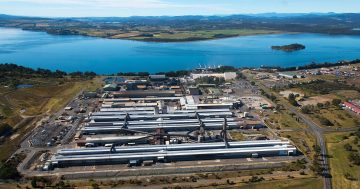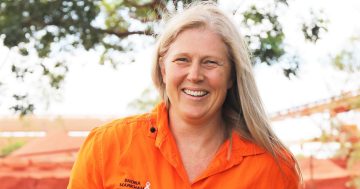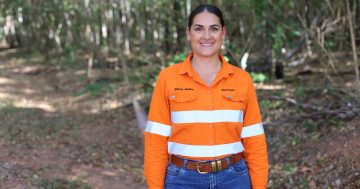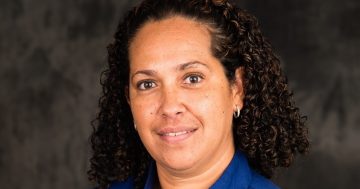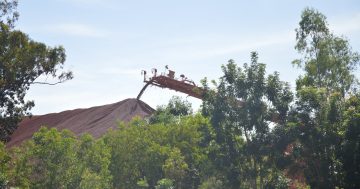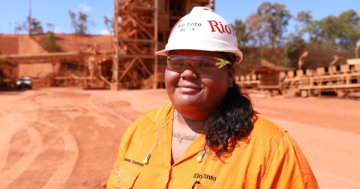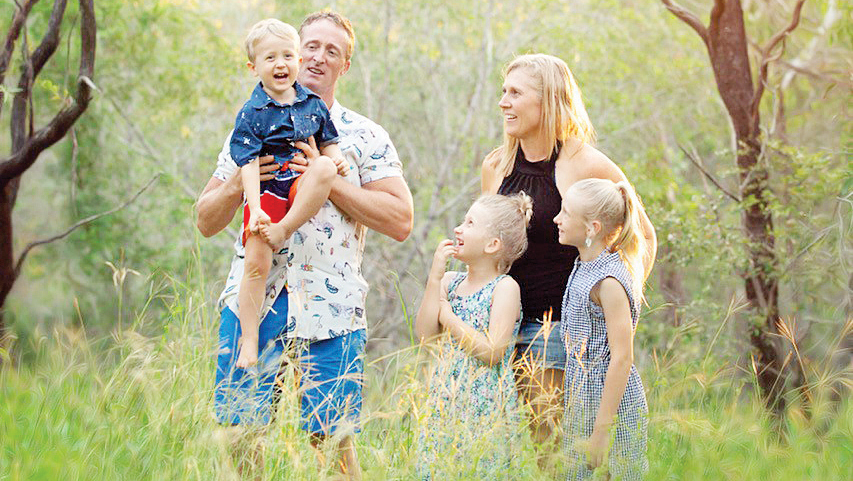
SHONA Markham already had a busy life in northern Tasmania, but the pace is likely to quicken in 2022 as she takes the reins of Rio Tinto’s Weipa operations.
The mother-of-three has taken the role in Cape York after heading Rio Tinto’s aluminium smelter in Bell Bay on the Apple Isle.
On the day she got on a plane to fly north, Ms Markham was rubbing shoulders with the Tasmanian Premier, securing the future of the smelter, one of the biggest employers in the region.
Despite her experience with Rio Tinto and previous leadership roles, the Weipa general manager position is a job like no other on the company’s books.
Firstly, Weipa is a company town administered by Rio Tinto.
All residents are ultimately impacted by operational decisions.
Then there is the mining.
There are three mines to take care of – East Weipa, which is in a closure stage, Andoom, which has about a decade left of mining, and the new kid on the block in Amrun, which will produce most of the company’s bauxite this century.
Perhaps the most difficult part of the job is forming relationships and building trust with Traditional Owner groups.
Ms Markham said she was well aware of the challenges of her new role, but was looking forward to taking on the responsibility.
“I was pretty humbled, to be honest,” she said of being offered the position.
“It’s a really important role within Rio Tinto. It’s also a really important part of the world in Australia.
“For my leaders to have the faith in me that I could do it, I felt really pretty humbled and privileged to be asked.
“And then, of course, there were all the emotions around the big life change for the kids.”
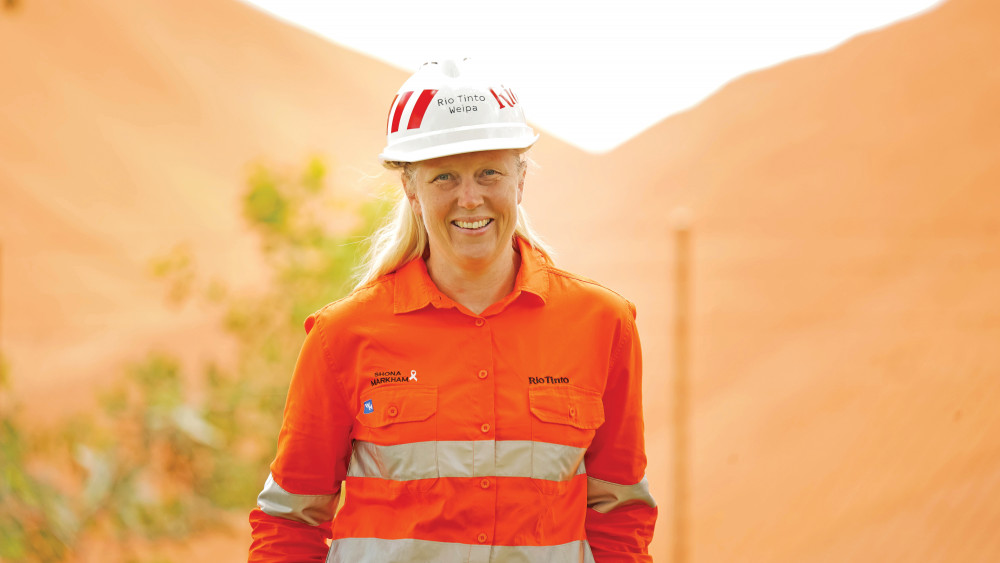
Ms Markham said her husband Chris and their three children Izzy, Hannah and Samuel would make the move to Weipa next month.
How they transition from the cold of Tasmania to the heat of Cape York remains to be seen.
But with a love of fishing and camping in the family, it’s fair to say they won’t be short of things to do when they arrive.
The new boss of Rio Tinto in Weipa said she found the mining industry after a love of science in high school.
Ms Markham grew up in the Illawarra in NSW and dreamed of a career that involved people.
“I’m a pretty social person and I did all science subjects when I did my HSC in Wollongong,” she said.
“But the idea of being a scientist didn’t excite me because it wasn’t working with people.
“I found engineering and the idea of getting into engineering was exciting for me.”
Ms Markham took a graduate position with Rio Tinto in Bell Bay and has remained with the company for 19 years.
“I’ve loved every second of it. I genuinely have loved being part of Rio. I love leading the teams,” she said of her journey.
After six years in Tasmania, Ms Markham took a leadership role at Gladstone, spending about 11 years in central Queensland.
She then returned to Bell Bay to take the reins as the head of the smelter.
“I’m not the sort of person that’s really looking for the next promotion or opportunity, I just try and do the best that I can for the team that I’ve got at that moment,” she said.
“So it was a surprise to get a call to go down to the Bell Bay general manager role.”
Aside from managing around 500 employees, the biggest challenge in Tasmania was ensuring the future of the business in the region.
“The smelter is 67 years old and there were ongoing questions about its future,” she said.
“One of the things we were able to do was get an agreement from both Rio Tinto and the Tasmanian government to work towards a really positive future for the smelter, and we announced that to the public on the day I flew up to Weipa.
“I was at the media conference with the Premier and our CEO and then I literally drove to the airport and was on a plane heading to Far North Queensland.
“I worked hard in my time there to grow the relationships with the community, with the government, with all the key stakeholders, and I feel proud that our biggest supporters are not just our employees, they’re our community.”
Speaking about the report which was last month released by Rio Tinto about its workplace culture, Ms Markham acknowledged it was a position that needed attention.
“It’s obviously troubling, the content of the report, but I feel proud to be part of an organisation that transparently shared that,” she said.
“I think the most important thing (in response) is it’s got to start with your personal values and your leaders’ values.
“And so basic respect has got to come first.
“That’s for everyone, no matter who you are, no matter what your background is.
“If we’re generally respectful and inclusive, then we’ve got an environment where everyone can flourish.
“We need to create the environment where people are actually included and valued for who they are and that they can be themselves 100 per cent.
“If we get that right, then they feel valued, then we can set up the right conditions so that they can then flourish.”


